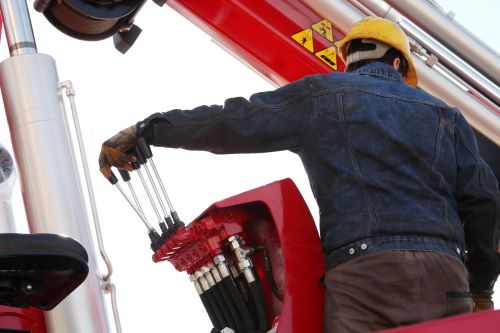
3 Popular Construction Site Jobs

Once you’ve decided on a career path in the construction industry, the sky’s the limit. With so much construction happening—and not just in the Portland area, but all around the country—there are many opportunities to find construction vocations if you’re looking for a job operating heavy equipment. So if you’re happiest on a construction jobsite, here are three popular construction site jobs for your consideration.
1. Excavator Operator
An excavator is an earthmoving machine that is vital on any jobsite. The operator will use an excavator to remove earth, debris, or other rubble from a jobsite, usually by loading up trucks or other conveyors. They’re easily spotted, with a bucket and arm (often called the boom) and movable tracks and a rotating cab where the operator is stationed. Don’t confuse an excavator with a backhoe: backhoes do not have the ability to turn around all 360 degrees.
There are many different types of excavators if you have specific needs for your jobsite. For instance, you might need a smaller machine for drilling or digging if you have space considerations, or you may need a larger machine for large-scale earthmoving operations. An excavator may also have different attachments at the end of its arm, depending on what job you need it for. These can include a bucket, a clamp, or an auger. Using the right machine and attachments for the job helps keep your project on time and within budget.
2. Heavy Equipment Operator
This is more varied than these others since you’ll work with more machines. Unlike an excavator operator, who may only work with excavators, a heavy equipment operator will also work with backhoes, graders, dozers, and other heavy earthmoving machinery. You’ll need a strong foundation to use these machines, so when you’re training, you’ll learn important concepts, including workplace safety, basic civil engineering concepts, project layout, basic surveying, and applied mathematics. A heavy equipment operator will also know site preparation, flagging, and grade checking, as well as preventative maintenance on the machines.
3. Mobile Crane Operator/Rigger
Our program at West Coast Training aims to provide as hands-on an experience as our students can get in order to enter the industry as NCCCO certified construction crane operators and riggers. The job is not only to operate the mobile crane but also to be able to rig loads with hook blocks and overhaul balls, using concrete buckets and clam-shell or drag-line attachments.
As an operator, you’ll also be able to perform tasks such as setting up the crane itself, using smooth operating techniques, tower erection, boom assembly, and signaling. It also may not be required, but it’s a good idea to pair this course with a CDL-A course. This means you will be able to operate any vehicle with a semi-trailer or trailer with two or more axles, meaning you can not only operate and rig your crane, but you can also travel with your crane to different job sites.
Contact us today to enroll in our upcoming courses.
